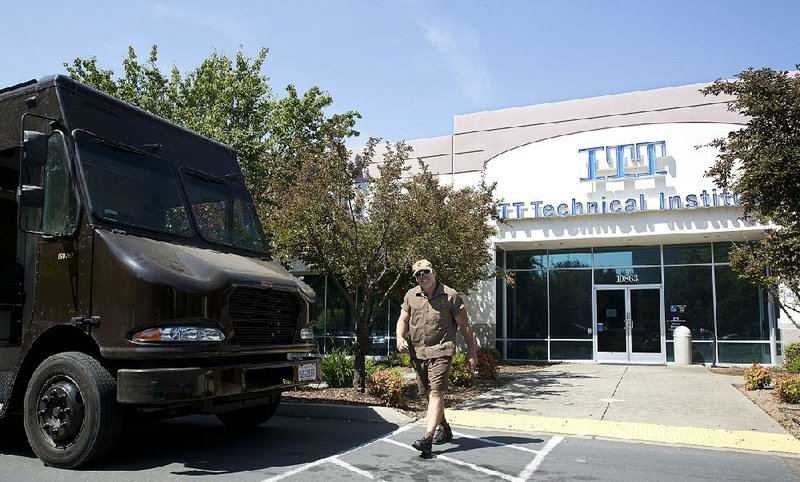ITT Educational Services Inc. has abruptly shut down its for-profit technical schools, closing more than 130 campuses, including one in Little Rock, and leaving as many as 40,000 students stranded.
In a statement released Tuesday, the company blamed the Department of Education for its downfall. Last month, the federal government demanded the company produce an additional $153 million in collateral -- nearly double its $78 million in cash on hand -- to cover possible losses that the government might incur if the company were to fail suddenly.
ITT said it terminated the "overwhelming majority" of its more than 8,000 employees.
"We believe the government's action was inappropriate and unconstitutional, however, with the ITT Technical Institutes ceasing operations, it will now likely rest on other parties to understand these reprehensible actions and to take action to attempt to prevent this from happening again," the company said.
For its Little Rock campus, ITT Tech had been leasing for several years a space at 12200 Westhaven Drive, a former movie theater, but the owners had rented out the space to a charter school earlier this year.
That forced ITT to move to the nearby Kirkpatrick Building at 10800 Finance Centre Parkway, which once housed the University of Phoenix.
ITT had said in federal court that it has "more than 150 students" enrolled at the Little Rock campus "at any given time."
The company's stock had reached highs of nearly $129 per share in 2007 as investors bet that Americans increasingly would flock to for-profit colleges for credentials that would enable them to advance in the economy or gain a foothold in the jobs market.
The government annually doles out more than $100 billion in loans and grants to students.
Colleges rarely face any consequences if students fail to graduate or subsequently default on debt. But an increasing array of allegations that ITT misled students about its success at placing graduates in their fields while defrauding investors -- the company faces pending lawsuits from the federal Consumer Financial Protection Bureau, the Securities and Exchange Commission, and the Massachusetts attorney general -- led the Education Department to restrict the company's access to taxpayer funds. ITT has denied the allegations.
Students enrolled at the company's schools have received close to $5 billion in federal aid since 2010, Education Department data show. About $3 billion of that was in the form of student loans. Most of that money went to the company.
Students now enrolled at the company's technical schools will be able to cancel any federal student debt they incurred for their education if they decide against transferring credits elsewhere.
Other former students are pushing to have their debts canceled by alleging that the company defrauded them into taking out the debt by advertising false job-placement rates.
Taxpayers will record a loss on those debt cancellations.
The government tried to avoid that situation by demanding that the company produce additional collateral.
Information for this article was contributed by Aziza Musa of the Arkansas Democrat-Gazette.
A Section on 09/07/2016
